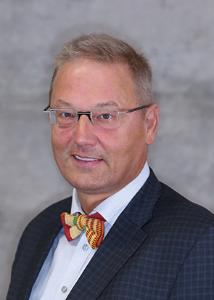Training Workshop - Auslandsbüro Ghana
Workshop
Details
Introduction
The Center for Indigenous Knowledge and Organizational Development (CIKOD) is a local NGO that is promoting the participation of Traditional Authorities and Indigenous Institutions in community organizational development. One central objective of CIKOD among others is to build the capacities of Traditional Leaders including Traditional Women Leaders to provide effective and efficient leadership for the development of their people.
In May 2008, CIKOD in collaboration with the University for Development Studies and the Institute for Development Studies of the University of Cape Coast, initiated a 3-Year Modular Training Course on Strengthening the Capacity of Traditional Leaders for participation in local governance, natural resource management and socio-economic development in the southern and northern sectors of Ghana. Participants for the Southern sector were drawn from the Upper East and Upper West Regions of Ghana.
The second in the series which was organized in 2009 focused on Conflict Management and Gender Mainstreaming.
The last in the series is focused on Leadership, Community Resource Mobilization And Natural Resource Management and is being organized by CIKOD in collaboration with the University for Development Studies. The training course is being organized for Traditional Women Leaders in Northern Ghana with the kind sponsorship of the Konrad-Adenauer-Stiftung.
As a prelude to this last module in the series of the training programme, CIKOD organized a research on Traditional Women and Leadership in the Upper West Region.
The purpose of the research was to gain a better understanding of the current situation of the traditional women leaders, such as their functions and how they are selected. The research also aimed at collecting perceptions about the relevance of the institution, the expected roles, the preferred way of selection, installation and outdooring of the new women leader as well as the power relationship between her and the chief.
The overall purpose of the research was to come up with some useful recommendations to promote and strengthen the institution of the traditional women leader in the Upper West in a way that it can play a pro-active role in community development. Three Zonal Workshops were organized in WA, Lawra and Tumu to share the research findings and issue communiqués for implementation and policy advocacy.
Objectives of the Training Course
The overall objective of the course is to strengthen the leadership and organizational capacity of traditional women leaders to contribute to good governance and community development.
The specific objectives are to:
1. Organize a 1-day workshop with the Upper West Regional House of Chiefs to present the Research Findings and the Communiqués from the three zonal workshops
2. Organize a 3-day workshop with the women leaders drawn from Wa, Tumu and Lawra on:
- The Role of Women Leaders in facilitating the participation of women in the decentralization process at the district and local levels.
- Discussion of the conclusions of the validation workshop with the Regional House of Chiefs
- Designing concrete action plans to implement the conclusions of the workshops
- Organize a field visit to communities in the Nadowli District on community-mining company engagement
Outputs
By the end of the Course:
1. Communiqué on the process and strategies for the identification, installation and strengthening of traditional women leaders in the Upper West Region.
2. Concrete action plans for making Traditional Women Leaders visible in the activities of the 17 Traditional Councils in the Upper West Region as well as natural resource mobilization and management
3. Women Leaders in the Upper West Region of Ghana develop action plans for encouraging the participation of women in the district assembly elections to be held in October 2010.
4. Women leaders gain deeper understanding on the challenges of natural resource extraction by mining companies
Duration of the Course: 4 days
Venue: In-Service Training Centre
Date: 12th – 17th September 2010
Date of Reporting: 12th September 2010
Date of Departure: 17th September 2010
Methodology
The methodology for delivering the course will be mainly participatory training and learning based on the Appreciative Enquiry Approach and the principles of adult learning. The training approach will be learner-centred, problem posing, self-discovery and analysis, and action oriented approach. In this approach, the trainers acknowledge and respect the fact that the Traditional Leaders have expertise and talents of their own which must be given scope for expression and developed.
This participatory adult-learning approach to training and learning is a two-directional situation in which a partnership between trainers and trainees occurs and people discover their own strengths, develop problem-solving skills and together play a more effective role in managing their affairs. In short, the main methods to be used will be presentations by trainers, group work, presentations at plenary, field visits, and questions and answers.
Logistics
The cost of board and lodging and travel expenses will be borne by the course organizers. Participants may have to stay in shared accommodation if the need arises. Participants will also be provided with writing and other necessary course materials.
Course Content
Leadership
- Socio-cultural definitions and attributes of leaderships.
- Institutionalizing the Pognaa/halla kuoro in the UWR – discussion on research findings
- Issues for affirmative action – making the pognaa/halla kuoro visible in the UWR
- Promoting the participation of women in the District Assembly elections – what role for the Pognaa/Halla kuoro?
Community Resource Mobilization And Management
- Concept of community resources and rural livelihoods
- Sensitization on the gold mining activities in the UWR and impact on the well-being of women and children.
- Traditional and western models for Natural resource management for sustainable rural livelihoods.



